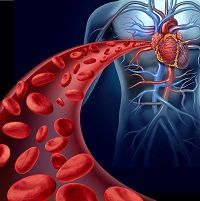Article
As-Needed Novel Oral Anticoagulant Therapy Safely and Effectively Reduces Stroke Risk in Well-Monitored Patients with Atrial Fibrillation
Author(s):
Researchers found that as-needed use of novel oral anticoagulants can effectively lower stroke risk in “motivated†patients with atrial fibrillation.

Researchers found that as-needed use of novel oral anticoagulants (NOACs) can effectively lower stroke risk in “motivated” patients with atrial fibrillation (AFib).
Investigators from the University of Pennsylvania recruited 100 AF patients with CHA2DS2-VASc scores ≥ 1 who wanted to avoid the daily anticoagulation recommended by guidelines. The cohort, which was 81% male, had a mean age of 64 years ± a standard deviation of 8 years. It also consisted of patients who maintained normal sinus rhythm most of the time. Indeed, none of the patients underwent any periods of AFib during the 3 weeks of electrocardiogram monitoring they underwent before the study began. (Some 84% of the patients had undergone ablation before the study began. The rest had used either medicine or implantable devices to treat their condition.)
The investigators confirmed that the patients could accurately measure their own pulse — either manually or with a smart phone app — and told them to do so at least twice per day. They then instructed patients to use NOACs if and only if they suspected an AFib episode lasting more than 1 or 2 hours. The exact duration of NOAC usage per AFib episode was determined by discussions between patients and doctors, but patients typically underwent at least 1 week of anticoagulation for AFib episodes lasting less than 1 day. Frequent AFib recurrences led to the resumption of chronic daily anticoagulation.
Over the course of approximately 23 months of follow-up, only 28 patients started taking a blood thinner at least once and only 10 patients resumed daily oral anticoagulation for recurrent AFib episodes. No patient experienced either a stroke or transient ischemic attack, and just 1 patient experienced a mild bleeding incident (epistaxis) that required medical attention.
“This alternative to long-term anticoagulation therapy requires very close and consistent interaction between patient and doctor. It’s imperative that the patients are extremely motivated and informed about how to effectively monitor their pulse throughout the day,” said lead author Monica Pammer, PA-C, a physician assistant at the Hospital of the University of Pennsylvania. “We’re confident that this alternate treatment method is a viable option for low risk patients who are willing and able to keep a vigilant eye on their pulse and stay closely connected with their doctor if they do experience AF and need to take an anticoagulant.”
The study authors, who presented their findings at the Heart Rhythm Society’s recent Scientific Sessions, noted the need for larger, longer trials to substantiate their conclusions. They said, however, that they were hopeful that as-needed treatment may be a legitimate alternative for the many AFib patients who want to avoid a lifetime of daily therapy.
“In general, about half of the patients we treat look for alternatives to oral anticoagulation therapy as they are wary of the increased bleeding risk that comes with taking a blood thinner long term,” said co-author Francis E. Marchlinski, MD, FHRS, director of Electrophysiology for the University of Pennsylvania Health System and Richard T. and Angela Clark President’s Distinguished Professor in the Perelman School of Medicine at the University of Pennsylvania. “Our study results are encouraging because it’s the first time we’re seeing that an ‘as needed’ approach can work for a specific patient population and provide an alternative to help lower stroke risk and improve overall patient care.”





